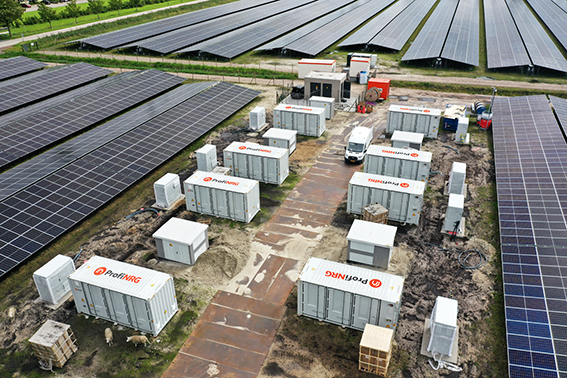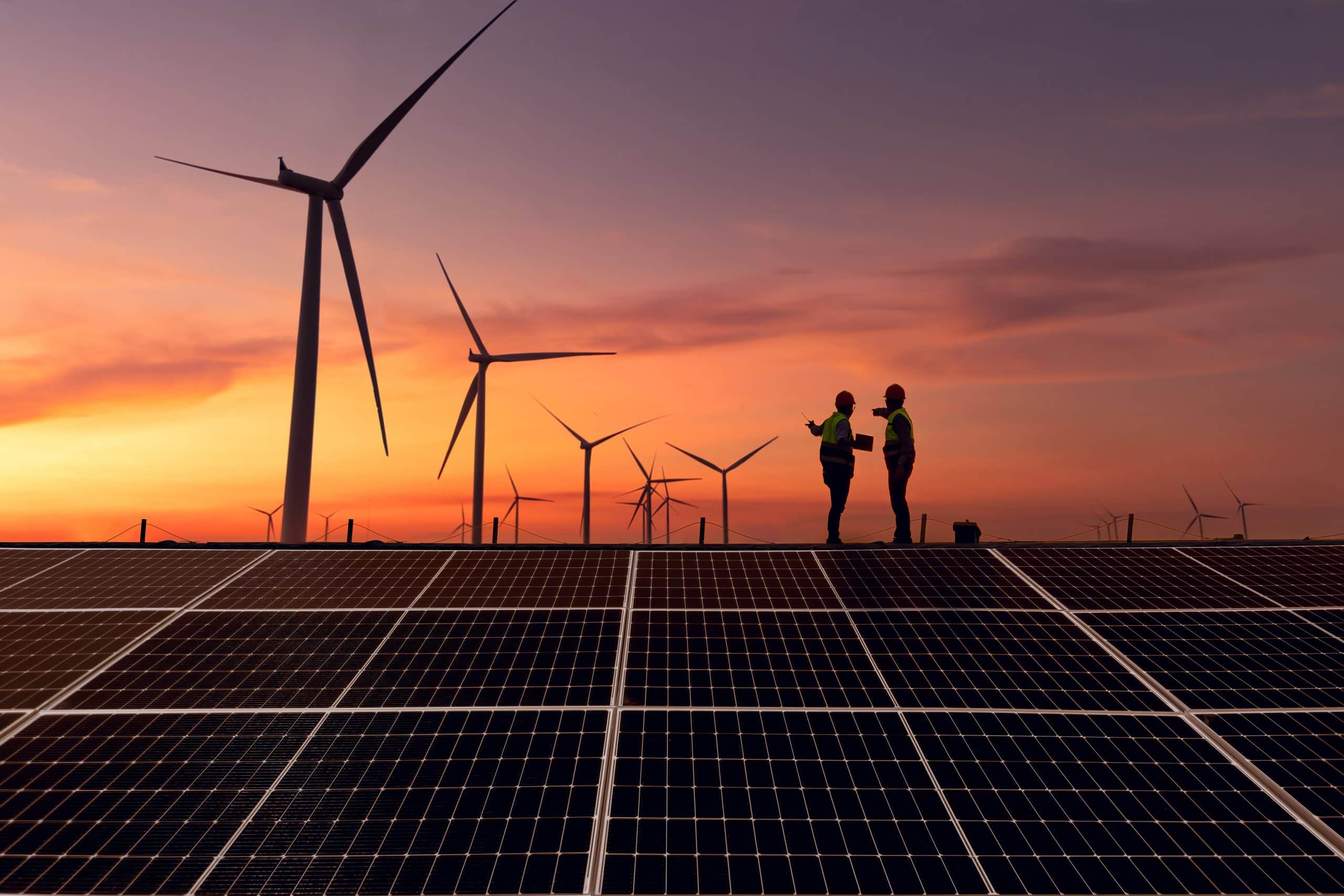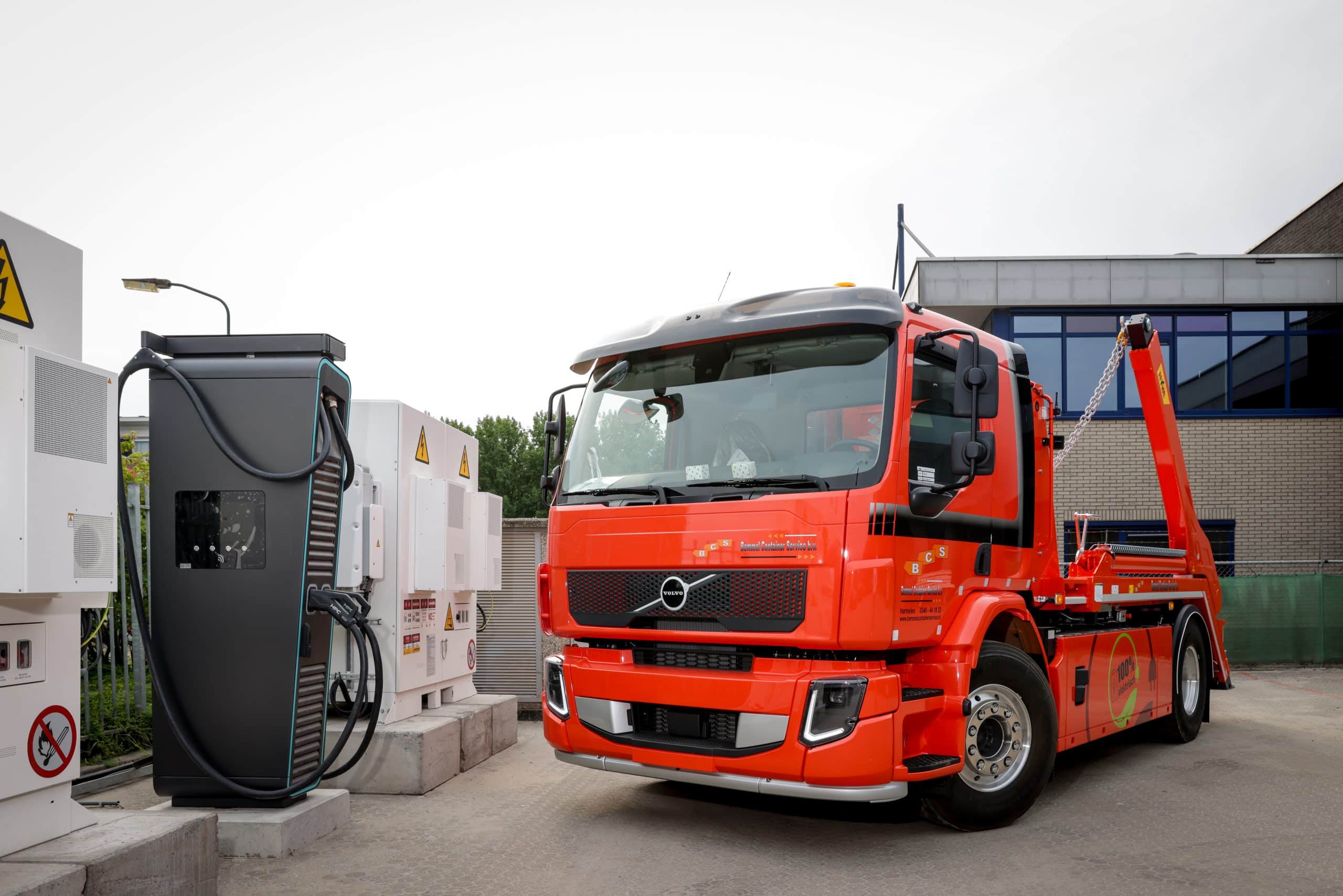Halt Dutch solar parks of temporary nature, there's no way around it

The realisation of large solar roofs and solar parks is under pressure in the Netherlands. ProfiNRG is therefore pressing ahead with internationalisation, says Cees van de Werken.
You lead engineering, procurement and construction (epc) company ProfiNRG. How did you fare in 2023?
'Good. With a total of 300 megawatt peak solar panels, we are among the biggest players in the Netherlands. We manage to grow by about 50 per cent every year, sometimes a little more, sometimes a little less. This year it is a little less. But so we are maintaining our growth rate. However, that does not mean that there is not something going on in the market.'
What were highlights for ProfiNRG this year?
'We realised our first major energy storage project, a battery with a capacity of 21 megawatt hours at Solar Park Zuidbroek that we built last year. We have more such developments in progress, in preparation and in the pipeline. We are also building Zonnepark Overbetuwe. That is unique. It is large by Dutch standards, will soon have a capacity of 86 megawatt peak. It is also highly visible, some 8 kilometres long and right next to the A15 motorway. That also makes it the most complex project we have ever carried out. It consists of 15 fields that are interconnected with a medium-voltage cable, we have to pass under motorways and the railway, and it lies under high-voltage power lines, so TenneT has its requirements in terms of fire safety and accessibility'.
What were the key market developments this year for ProfiNRG?
'From the summer onwards, rooftop projects took a hit. With lower energy prices, there is less need for entrepreneurs to become more sustainable. Of course, increased interest rates and congestion problems don't help either. Solar panels are cheaper than ever; in the case of solar parks, this directly affects the project price. In rooftop projects, that benefit is less, due to the higher labour component. With the drop in demand in the residential segment, residential installers are also focusing more on larger rooftop projects. So we gained competition.'
There is also something going on regarding solar parks.
'We saw it coming. But legally restricting solar parks on agricultural land developers and builders of large-scale solar projects are literally left out in the cold. The moment climate minister Rob Jetten came out with his 'no, unless letter' is also remarkable - just before the fall of the cabinet. It's as if it had to be pushed through just a bit more, prompted by the LT agricultural lobby and grid operators probably. In any case, you're not doing farmers any good with it. I don't know a farmer who would say no to a rent of 7,000 to 8,000 euros per hectare of land to put solar panels on it. Moreover, this decision substantially undermines our energy transition.'
We are still at the beginning.
'The need to push ahead is greater than ever, this is not the time for faltering government policies. The Dutch energy regions have formulated a Regional Energy Strategy (RES) and solar energy has been given an important place in it. They will need to sharpen it further. Take the climate summit in Dubai. A tripling of renewable energy between now and 2030 was agreed there this week. That cannot be done without large-scale solar projects. How this will all play out in the current Dutch political climate is of course exciting.'
You have no faith in it?
'I think that the market for large solar roofs will loosen up again, due to a drop in prices, but also due to new regulations. In January, for instance, the Building Works Decree (Bbl) comes into force. This will give municipalities broader powers to impose sustainability on company roofs. The current halt on solar parks will also be temporary - it has to be if we take our national and international climate goals and legislation seriously. So I look to the future with confidence. You can turn a blind eye to nuclear energy, for instance, as several political parties are now doing, but we will not achieve our energy transition ambition with that because of the long procedures and construction time of nuclear plants. Moreover, the cost price is simply far too high. Wind and solar combined with energy storage provides a lower power price, and also offers the flexibility that a green energy system requires. So that is the way to go.'
What does this all mean for ProfiNRG?
'We have been focusing on internationalisation for some time. By being active in different markets, you spread risks, partly due to inconsistent policies. We are increasingly focusing abroad and are making substantial acquisitions, for instance in Germany, France and Scandinavia. In the Netherlands, there are still enough projects in the pipeline for the next two years. We see major opportunities in energy storage. Banks are not yet lining up to finance these projects because of the difficult business cases; subsidies may be needed for the time being to get them off the ground. But eventually the cost price of storage through mass production will also be competitive and make its contribution to the Dutch energy transition.'



